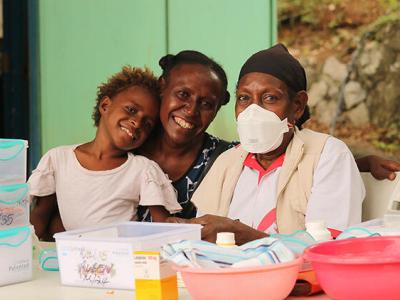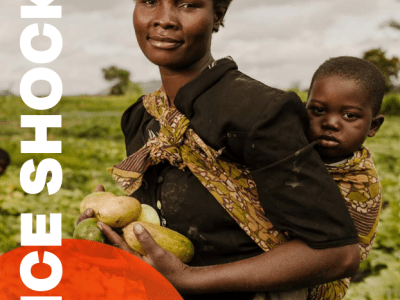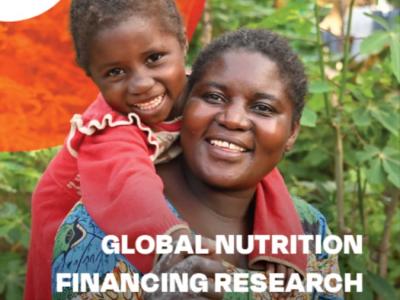article / April 1, 2025
Zambia Multiple Micronutrients Supplementation Project: Empowering Women and Driving Community Solutions for Maternal Nutrition
In many communities across Zambia, expectant mothers face an uphill battle in accessing the essential nutrients needed for a healthy pregnancy. Traditional antenatal care has long relied on iron and folic acid (IFA) supplements, but coverage gaps, sociocultural barriers, and adherence challenges have limited their effectiveness. This has left many pregnant and postpartum women vulnerable to micronutrient deficiencies, which can lead to complications such as anemia, low birth weight, and even maternal mortality.
publication / March 27, 2025
Success in Action: Tackling Acute Malnutrition with Positive Deviance Hearth
Positive Deviance Hearth empowers communities to leverage their local knowledge and foods to not only treat but also prevent malnutrition sustainably.
publication / April 1, 2025
Global Fund Annual Report 2023
Results of World Vision's HIV, TB, and Malaria programmes, funded by the Global Fund.
publication / March 28, 2025
Nutrition for Growth Child & Youth Call to Action
Children and youth urged leaders to tackle global malnutrition at the Nutrition for Growth Summit in Paris, highlighting the need for urgent action and meaningful involvement.
publication / March 25, 2025
Nutrition Dialogues: Global Synthesis – Headlines
This Headlines version summarises the Nutrition Dialogues: Global Synthesis report
opinion / March 21, 2025
Rethinking Malnutrition Prevention and Treatment
Diane Baik considers how local, food-based approaches empower families and provide sustainable solutions.
publication / March 18, 2025
Price Shocks 2025: High Prices Lead to Hunger Pandemic
World Vision report that looks at how long it takes for families around the world to be able to afford basic food supplies.
article / March 28, 2025
World Vision Ghana Calls for Urgent Action on Water Preservation
World Vision Ghana reaffirmes its commitment to ensuring access to clean and safe drinking water for all, as it joined global partners to commemorate World Water Day 2025.
publication / March 26, 2025
Global Nutrition Financing Research Report
World Vision and the SDG2 Advocacy Hub spoke with key stakeholders at global and national levels to uncover barriers to long-term, predictable, and accountable donor investment – and explore bold solutions.
publication / April 1, 2025
RAISE 4 Sahel Results
Results of the Gavi-funded RAISE 4 Sahel (R4S) project.









